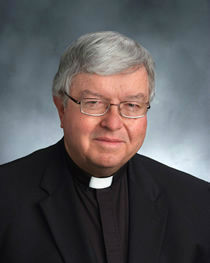
Faith
... a priest who would violate the seal is to be excommunicated

Doyle
Q. I am an old-time Catholic. We were taught that, to be forgiven in confession, we had to: 1) be truly sorry; 2) resolve firmly never to commit the sin again; and 3) make it right (e.g., give the money back, tell people that the gossip was a lie, etc.).
On television and in the movies, sometimes a murderer confesses to a priest who is unable then to break the seal of confession. My question is this: Are murderers forgiven if they do not turn themselves into the police and serve prison time for the crime? Or is the sin forgiven with no strings attached? (Milwaukee)
A. With regard to the conditions for forgiveness, you learned your catechism well. In fact, the present-day Catechism of the Catholic Church says: "Many sins wrong our neighbor. One must do what is possible in order to repair the harm (e.g., return stolen goods, restore the reputation of someone slandered, pay compensation for injuries)" (No. 1459).
You are right, too, about the seal of confession; a priest is bound to absolute secrecy. The church's Code of Canon Law could not be more clear: "The sacramental seal is inviolable; therefore it is absolutely forbidden for a confessor to betray in any way a penitent in words or in any manner and for any reason" (Canon 983).
A later canon stipulates that a priest who would violate the seal is to be excommunicated (Canon 1388). (In 2017, when an Australian government commission recommended that Catholic priests become mandatory reporters on child sexual abuse, the Catholic Church strongly objected as applied to the sacrament of penance.)
As to your specific question, forgiveness in the sacrament is contingent on a person's genuine sorrow and sincere resolve not to commit the sin again; those are the "strings attached." Beyond that, a priest has no power to condition absolution on the sinner's turning himself in to the police.
The confessor can encourage, plead with, urge the penitent to do exactly that -- he might even offer to accompany the penitent to the police station -- but having judged the penitent to be truly sorry, the absolving priest has no authority to impose this further step as a prerequisite to absolution.
Q. Recently in your column you answered a parishioner who had an overseas priest doing the homilies with less-than-suitable English skills. An approach that was used in our own parish was to have the homily printed and left in the pews, so that parishioners could read along as the celebrant spoke.
I believe that the nominal cost of this was far outweighed by what the congregation was able to retain. I was also wondering -- although this was not done in our parish -- whether it would be permissible in a case like this for a parishioner to read the priest's homily from the lectern in place of the priest. (I do think that our parish has benefited greatly from the cultural diversity of our priests and deacons.) (Greensburg, Indiana)
A. A printed homily in the pews, in that situation, strikes me as a good idea. It would fill out and reinforce the bits and pieces the congregation might be able to understand from the pulpit.
As to your question, I shouldn't think it a problem to have a parishioner read aloud the priest's written words; it is, after all, the celebrant's own homily. (Liturgical regulations call for a homily to be given by a priest or deacon.)
I might add that some parishes print on their website the text of Sunday homilies. This not only permits shut-ins to benefit but allows churchgoers to reflect on the homily at their leisure once they return home.
- - - Questions may be sent to Father Kenneth Doyle at askfatherdoyle@gmail.com and 30 Columbia Circle Dr., Albany, New York 12203.
- Father Kenneth Doyle is a columnist for Catholic News Service
Recent articles in the Faith & Family section
-
Popular devotions and the liturgyFather Robert M. O’Grady
-
The Fight for Our FaithMaureen Crowley Heil
-
The shepherd's voiceScott Hahn
-
Scripture Reflection for April 21, 2024, Fourth Sunday of EasterJem Sullivan
-
The new Temple: How Easter changes religionDr. R. Jared Staudt


















